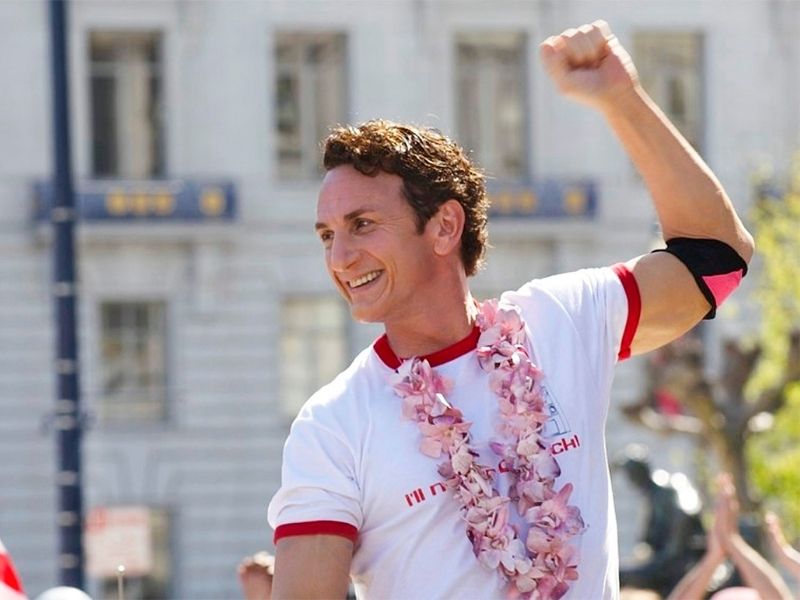Pride Month is here and we, at Best of Netflix, are excited to share some of our favourite works on Netflix by certain queer filmmakers.
The LGBTQ+ community have withstood all the storms that have tried to wear them down. From verbal abuse to physical assault and social exclusion, the community has managed to stand tall despite heartbreaking events, including the Stonewall riots, that led June to be declared as the Pride month when love will be celebrated in its rawest and most vulnerable form.
Hollywood has tried its level best to rival international cinema in their love and support for homosexuality. Not long back, Hollywood was predominantly filled with heterosexual, cisgender, mostly male directors. While sometimes they did pick up diverse narratives and stories, their perspective could not shed off the inherent male gaze. With increased representation, the problem is being well-countered.
While there are various filmmakers like the Wachowskis, Jodie Foster, Gus Van Sant and more who identify as queer and deliver brilliant works of art, some of them venture into difficult realms that are beyond the gender and sexuality spectrum, often approaching highly-charged political subjects.
Here are the five best films on Netflix that have been directed by queer filmmakers:
5 best films by queer filmmakers on Netflix
Mudbound (Dee Rees, 2017)
Based on Hillary Jordan’s eponymous novel, the film is a heart-wrenching and thought-provoking film that ends on a horrifying note as a constant reminder of the racism prevalent in the United States even today, while taking a closer look at two ar ravaged, poverty-stricken families. Two war veterans strike an unusual friendship based on common experiences, transcending racial prejudices and social impositions.
Intimately shot and a deliberate slow-burn, the film evokes rage and pity with its incredible portrayal of trauma and racial injustice. Brutal, cruel and scry, the filmmaker does an outstanding job maintaining her composure while presenting a story of exploitation, racism and misery. Rees was also the first Black woman to receive a nomination for Best Adapted Screenplay.
Pariah (Dee Rees, 2011)
Set in a dysfunctional African American household, the film chronicles the trials and tribulations of stepping out of the closet. Alike is a Black teenager who comes to terms with her sexuality, realising that she is a butch lesbian, after befriending an openly lesbian Laura, much to the chagrin of her orthodox, queerphobic mother. Soon, unable to face resentment and verbal abuse, she leaves home to forge her own destiny.
Alike’s coming-out tale is steeped in raw vulnerability and bittersweet tenderness. Her journey towards self-discovery is daunting but rewarding. Touching upon themes like self-acceptance and self-discovery, the film is a brilliant infusion of platonic friendships, lesbianism, love and emotions.
Milk (Gus Van Sant, 2008)
The film explores the life and career of Harvey Milk, tracing his life from his 40th birthday to his death. Milk openly embraced his sexuality and started a camera shop which became a safe shelter for the gay community. After running for office, Milk went on to become California’s first-ever openly gay official.
Van Sant went on to make a biopic after a decade of arthouse filmmaking. One of his most fascinating films, Milk won Sean Penn an Academy Award for upholding the spirit and energy required to play a man as luminous as Harvey Milk. Talking about why he took up the film, Penn shared, “It was a wonderfully written script with one of the great directors. Of course, I could lay on top of all that, the values that this story and Harvey Milk’s life have, but that would take a long time.”
Alex Strangelove (Craig Johnson, 2018)
This coming-of-age LGBTQ+ film revolves around the titular Alex who begins dating hsi best friend Claire, only to realise that she is not what attracts him. He meets a gay teen named Elliot who makes him question his own sexuality. While being in total denial, Alex begins to grow increasingly attracted to the latter, often questioning his sanity.
Craig Johnson is openly gay and shared how his personal experiences helped shape the story and deliver a witty and smart take on the topic. He said, “Alex Strangelove is largely autobiographical. It kind of charts my own personal story of sexual confusion in my teens and into my twenties but kind of condensed into one kid’s senior year of high school.”
The Butler (Lee Daniels, 2013)
A sharecropper’s son escapes a cruel white master and overcomes hurdles to become a White House butler, serving various Presidents over decades, being a passive bystander to the evolving history of the Civil Rights Movement. With the movement gaining momentum, his wife resorts to alcoholism, and his eldest son decides to be a seeker of justice, while the youngest enlists in the military while he continues to be a mute spectator.
Based on historical importance and accuracy, the film is a delicate and emotionally-charged portrait of the politics of race and identity. With a stellar cast, namely Forest Whitaker, Oprah Winfrey, Robin Williams and otters, the film is a brilliant creation by Daniels.
